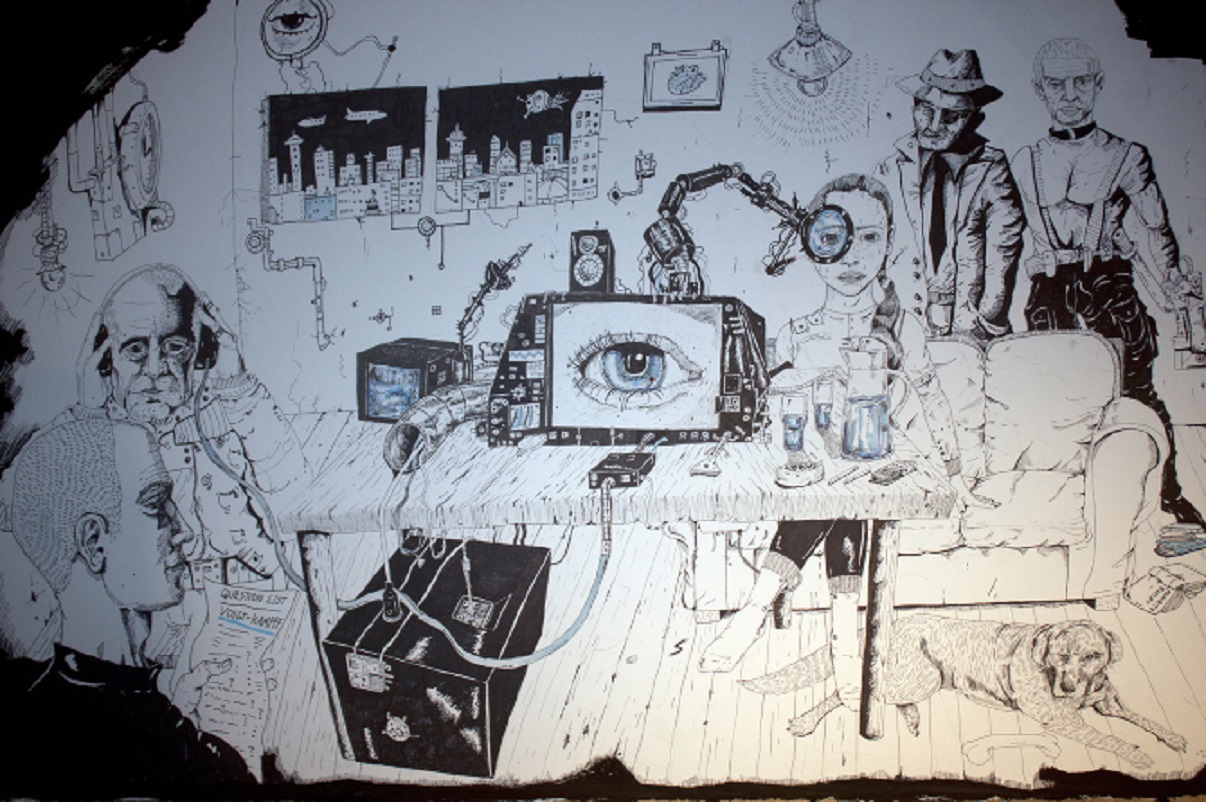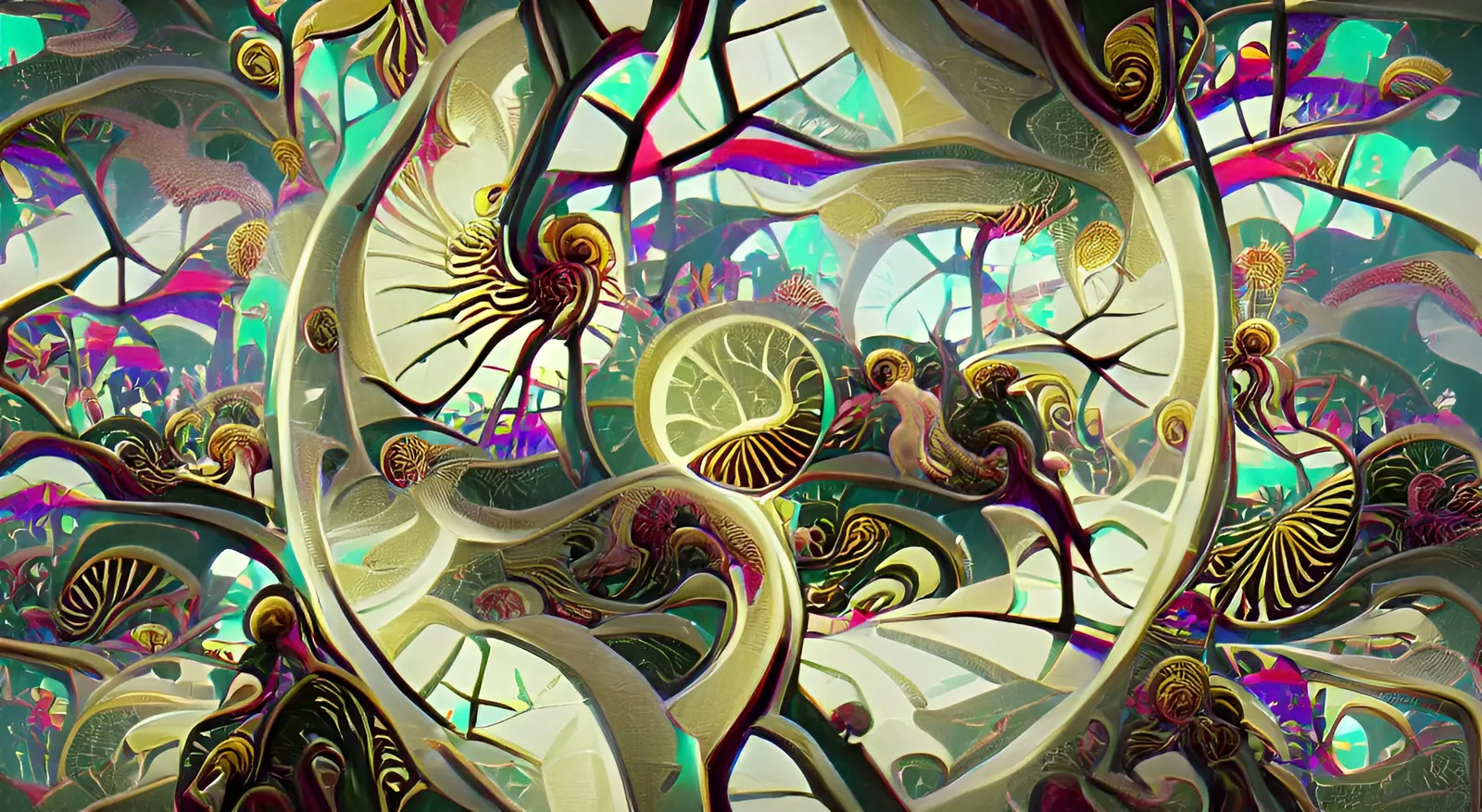According to Umberto Eco, the universe – when it comes down to it – is a harmless kind of enigma. It is ‘harmless’ because it doesn’t do any harm; it’s harmless because it is actually perfectly okay for the universe to be an enigma. Eco then goes on to say that the universe stops being the harmless enigma that it is when we insist on trying to solve it. In this case it torments us – the enigma torments us precisely because it is an enigma, precisely because it can never be solved. It’s an itch that we would be much better off not scratching…
We could develop this premise a little bit to say that the universe will cut up rough on us (not just a little bit rough, either) when we try either to ‘understand what it is’, or ‘try to control it to be the way that we think it ought to be’. If we do either of these two things then the universe is going to turn around and bite us on the arse. This is rather like trying to pick up a king cobra or a black mamba by the tale – if you know anything at all about snakes you know that this is definitely not a good idea! If you actually want to have the experience of being bitten by one of the world’s most venomous snakes then that would of course be fine, but who on earth wants that?
So these are the two things we really shouldn’t try to do to the universe – we shouldn’t either [1] ‘try to understand its ultimate nature’ or [2] ‘try to control it’ – and yet these are also the two things that we always do try to do! As far as we’re concerned, to exist in the world is synonymous with trying to understand and control it – we actually can’t tell the difference between ‘being in the world’ and ‘controlling’, or ‘being in the world’ and ‘analyzing’. The one seems to follow on automatically from the other, it seems to us. Actually, ‘understanding what the world is’ and ‘controlling it’ are at root the very same thing – when we ‘understand’ something that is because we have ‘said what it is’ and that’s just another way of talking about controlling. We’ve made it be what we want it to be. It’s all controlling, really. That’s just about all we know how to do.
We might naïvely think that science ‘explains’ the universe to us, that it makes everything logically understandable to us. It doesn’t. What science does is to illuminate the relationships that exist between different aspects of the universe (between the force of electromagnetism and gravity perhaps, although this has not so far been done). Science doesn’t have the job of saying why there was a universe in the first place, or ‘why there was something instead of nothing’. It’s true that we can talk about the universe as being giant vacuum fluctuation’ but that doesn’t get rid of the mysteriousness of it in any way. It’s not science’s job to eradicate the mystery of life or the universe, and somehow ‘explain it away’! To want to do that is just plain stupid! To believe that this is what science ought to be doing (making everything bland and known) is monstrously misinformed… Scientists don’t become scientists because they want to ‘kill the mystery of life’, as if it were some sort of deadly enemy, they become scientists because they love the mystery, and are deeply curious about it.
Having said this, for most of us the irreducible mystery or enigma that is existence is treated as an enemy to be wiped out; that’s exactly how we see it – we’re not happy about this enigma and we absolutely don’t want it for it to be there. We’re not curious about it, we just want to squash it! So as Umberto Eco says, the one time the enigma stops being harmless and becomes instead an inexhaustible source of suffering is when we aggress it, and this is what we always do – we always insist on doing the one thing we shouldn’t do (assuming that we don’t actually want all this suffering, which is a pretty fair assumption). The thing is of course that it’s very important to us that we should exist in a world that offers us no irreducible existential challenge and we should therefore be able to get rid of this challenge (without even having focus on the fact that there either is a challenge or that our Number One Preoccupation is trying to get rid of it). Those are our ‘terms’ for existence and we won’t budge on them!
It’s as if we are living with somebody and we want that person to be absolutely known to us in all respects. We don’t want any of their behaviours to radically surprise us: we want – in other words – to feel utterly familiar with them. We want to believe that they are ‘totally known’ to us so that we never actually have to look at them again. Perhaps we had to look at them once, but there’s no need for that anymore. They are now a closed book and that’s the way we want it. Everything has become very comfortable now – terminally comfortable, in fact. This is of course exactly what we have done with those people who are part of our lives, and is also what we have done the world that we live in, whether we like to admit it or not. The world has become no more than the backdrop against which we act out our repetitive routines, just as the people we share our lives with have become nothing more than ‘our partners in acting out these tired old routines’. Our attitude to the universe we live in and our attitude to the people around us is the same thing and how could it not be? It’s all of one piece – either the switch is turned ‘on’ or it is turned ‘off’…
From what we have just said therefore, it sounds as if we’ve managed quite successfully to bury the existential enigma under the weight of our profound indifference without it ‘biting back’. We have ‘got away with it’ in other words, and when we take a look around us at the way we human beings have all turned out in this modern ‘cybernetic age‘ of ours, and the way in which we are – almost entirely without exception – totally absorbed and fascinated by the trivial, banal and essentially reiterative reality that we have created for ourselves, it would very much appear that the central, irreducible enigma of existence hasn’t bothered itself to fight back! It rather looks as if the enigma doesn’t care about us, and whether we choose to ignore its existence throughout the entire course of our lives.
It is however interesting to note those instances where the enigma clearly does bite back, where it does torment us, where it actually does create huge amounts of mental suffering for us on a daily basis. The most obvious example of this is anxiety – in anxiety we are engaged in the ‘impossible task’ are trying to control or predict reality. The urge that is acting on us is the urge to figure out what way things might ‘go wrong’ and then avoid this possibility happening. If we could be successful in this quest then we would be tremendously relieved, but the thing is of course that this sense of relief never comes, even though we are forever chasing it. There is no peace waiting for us at the end of the road of anxiety – very obviously – even though at the same time we are plainly hoping that they might be if we keep going down it – that’s the hope that’s keeping us going. If we didn’t think (on some very basic level) that we might be able to ‘fix the problem’ then why would we keep putting every last bit of our energy into the task? We’re ‘hoping against hope’ that we can control our way out of the situation.
On the other hand – however – it is the unavoidable awareness (or suspicion) that our fixing behaviour is doomed to failure in this regard that constitutes the major part of the suffering of anxiety. What is happening here therefore is that our awareness is telling us that we are never going to ‘solve the enigma’ (which has now turned up on our doorstep in its negative or threatening guise as risk) but something in us absolutely doesn’t want to hear this message and throws itself instead into the task of doing what our awareness tells us we never can do. In this way we are ‘fighting against ourselves’ at the same time that we are fighting against ‘irreducible risk (which is as we have said the hostile aspect of the existential enigma). The suffering of anxiety is thus a perfect example of how what Umberto Eco calls ‘a harmless enigma’ can become an implacable source of suffering, and not so ‘harmless’ at all.
Another example of how fighting against the enigma causes us ending suffering is the condition known as OCD – in OCD we are struggling as hard as we can to get things to be ‘the right way and not the wrong way’ – this is a losing battle however because things will never stay ‘right’ for very long, and in the case of runaway perfectionism we can never even get them to be properly ‘right’ in the first place! Even that is too much… We can’t give up our doomed struggle however because of our very great (indeed, all-consuming) fear regarding what will happen if things do go the wrong way rather than the right way. It is this fear that causes us to take up the fight against the enigma and see it as ‘the enemy’. For us, that the enigma should be allowed to be the enigma, and not be neutralised in some way, is an absolutely unacceptable possibility for us and we will fight against it with everything we’ve got, much as a devout fundamentalist Christian will fight against Satan with everything they’ve got.
Neurotic suffering in general can easily be seen to be the result of us ‘picking a fight with the wrong guy’ and taking issue with the enigma. We are afraid to let the enigma be the enigma so we fight against it; we take up arms, we embark upon the ‘impossible struggle’. In essence, we unwisely choose to ‘head-butt reality’ and the only one who gets a headache from this is of course ourselves! We can understand depression in this way too – suppose that we are (apparently) successful in ‘neutralising the enigma’ and, as a result, it no longer figures in our lives any more. Victory is ours – we have achieved the stupidest thing anyone could ever possibly achieve – we have effectively neutralised reality itself. In this case our ‘victory’ is of course the very worst thing that could ever happen to us – we’ve gotten rid of’ reality and our assumption (dumb as it might be) is that this is somehow going to turn out to be a good thing! Depression – therefore – is where we get to realise – at our leisure, as it were – that what we have just ‘succeeded at’ is not such a smart thing after all.
This then brings us back to the point that we mentioned a little while ago – suppose that we ‘triumph over reality’ and gloriously succeed at ‘neutralising the enigma’ and yet we don’t suffer from anxiety, OCD, depression or any other form of neurosis as a result? Suppose we’re quite content with our lives, What then? What terrible bad luck that would be!






